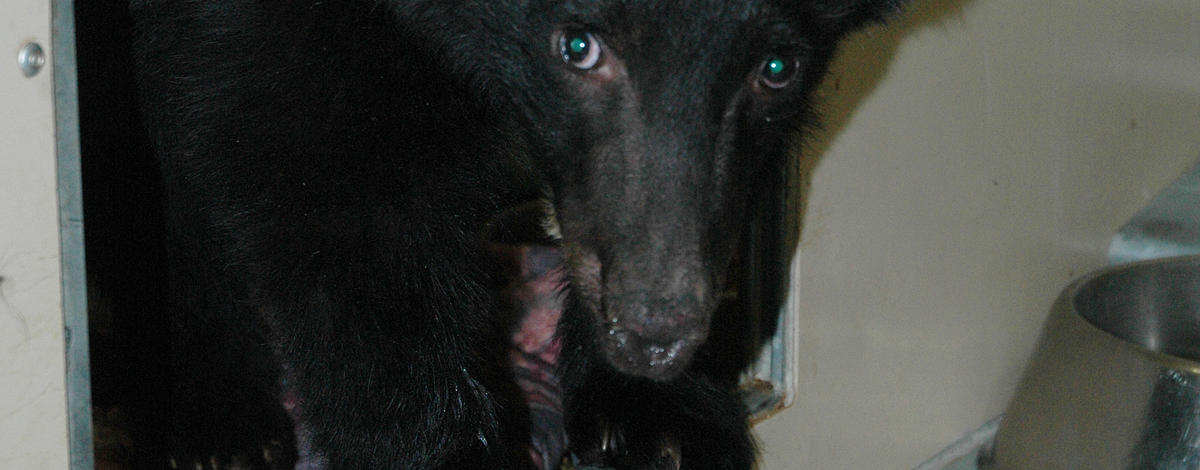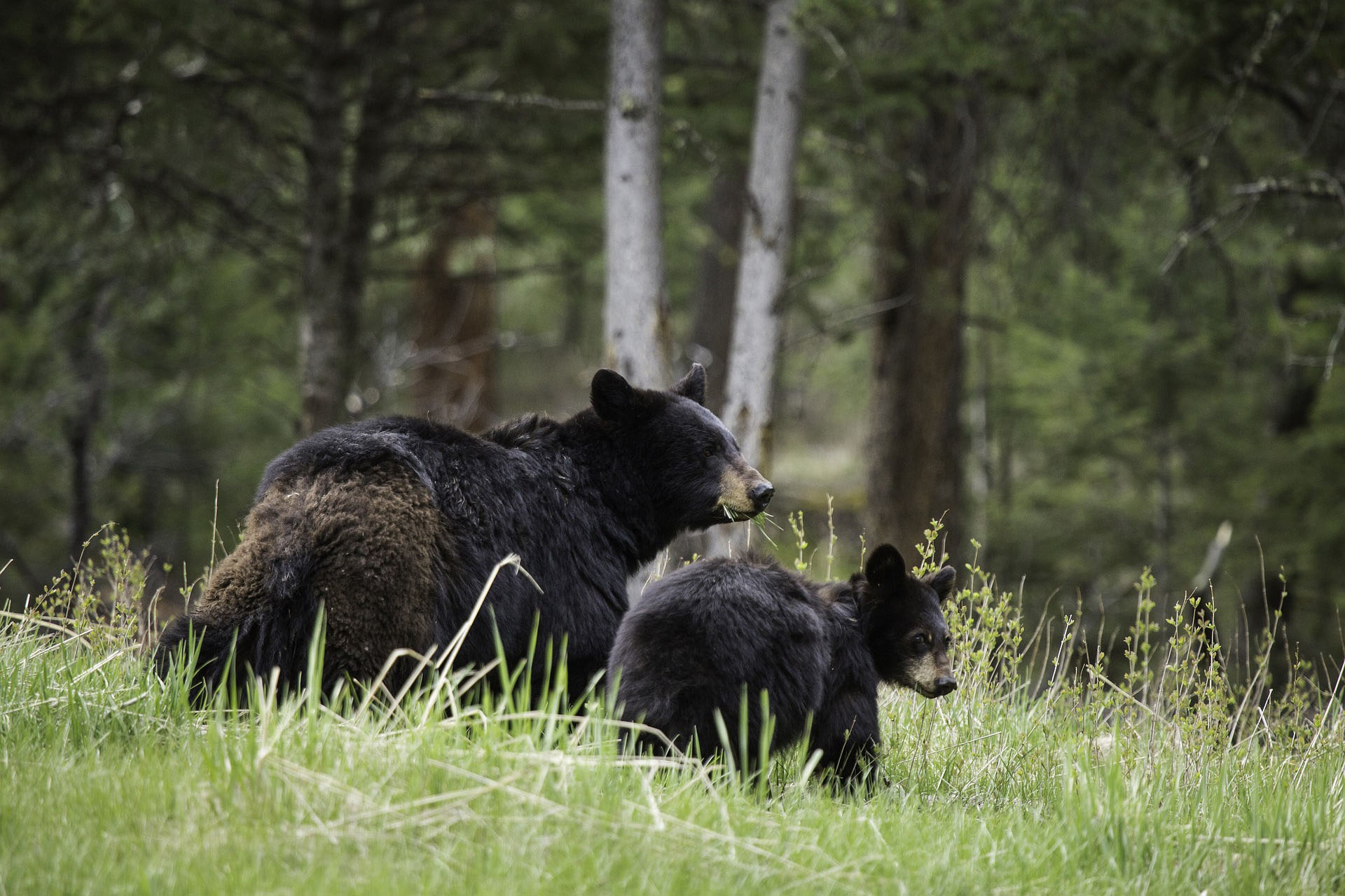Black Bears in Idaho
Black bears (Ursus americanus) are found throughout both the foothills and forests of Idaho. Between 20,000 and 30,000 black bears roam these wild lands. These bears share space with a human population that is expected to grow by more than 15 percent during the next 10 years. This means that human/bear encounters will continue and likely increase.
Every year, Idaho Fish and Game Department staff respond to dozens of calls from citizens reporting bears that have become become attracted to — and then accustomed to — human food sources such as garbage, bird seed, and pet food. Though the bears are just following their sensitive noses to high-calorie foods, being in constant contact with people can cause them to lose their natural wariness of humans. Bears intent on getting a good meal can cause harm to someone who gets in their way. For this reason, Fish and Game staff are regularly forced to euthanize some bears that have become too comfortable around people. That’s treating the symptom, not the cause of the problem.
Mountain Towns are in Bear Habitat
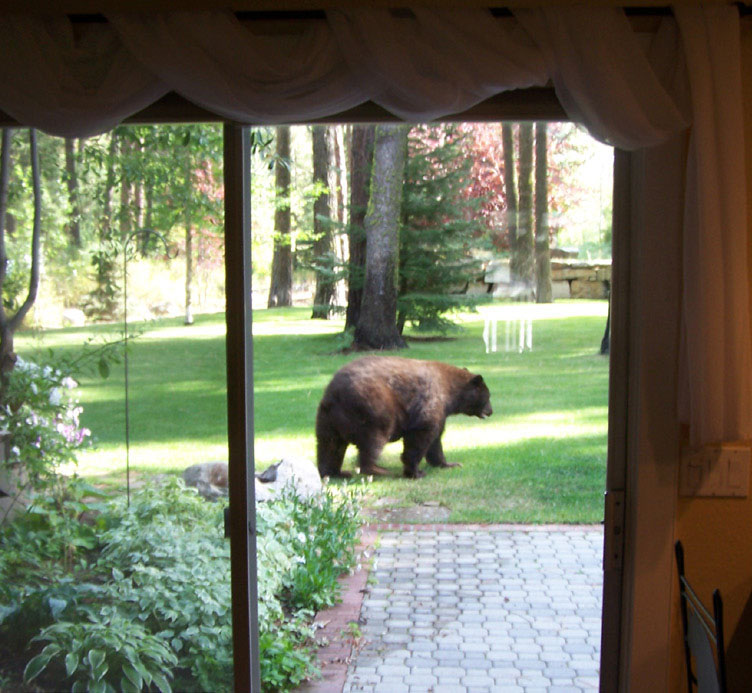
Idaho’s mountain towns are a great place for humans, but why do bears like them so much?
Bears spend approximately one-third of the year in their den, sleeping through winter. To prepare for this, they spend most of their time during summer and fall fattening up by consuming as many calories as possible.
Contrary to popular belief, more than 90 percent of most black bear diets consist of vegetation: berries, nuts and plants. A bear’s keen nose can smell foods up to five miles away! Although towns have hazards such as dogs, cars, and people, they also have the benefits of calories. The table below compares the calorie contents of some natural and human sourced black bear foods:
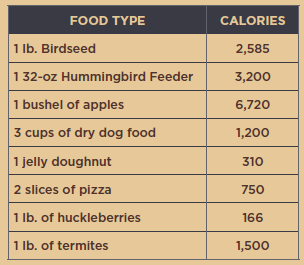
When two slices of pizza from a dumpster provides more calories than an hour spent raking huckleberry bushes, the benefits of town can quickly outweigh the risks. In addition to great noses, bears have great memories, and will revisit a home many times once they’ve found food there.
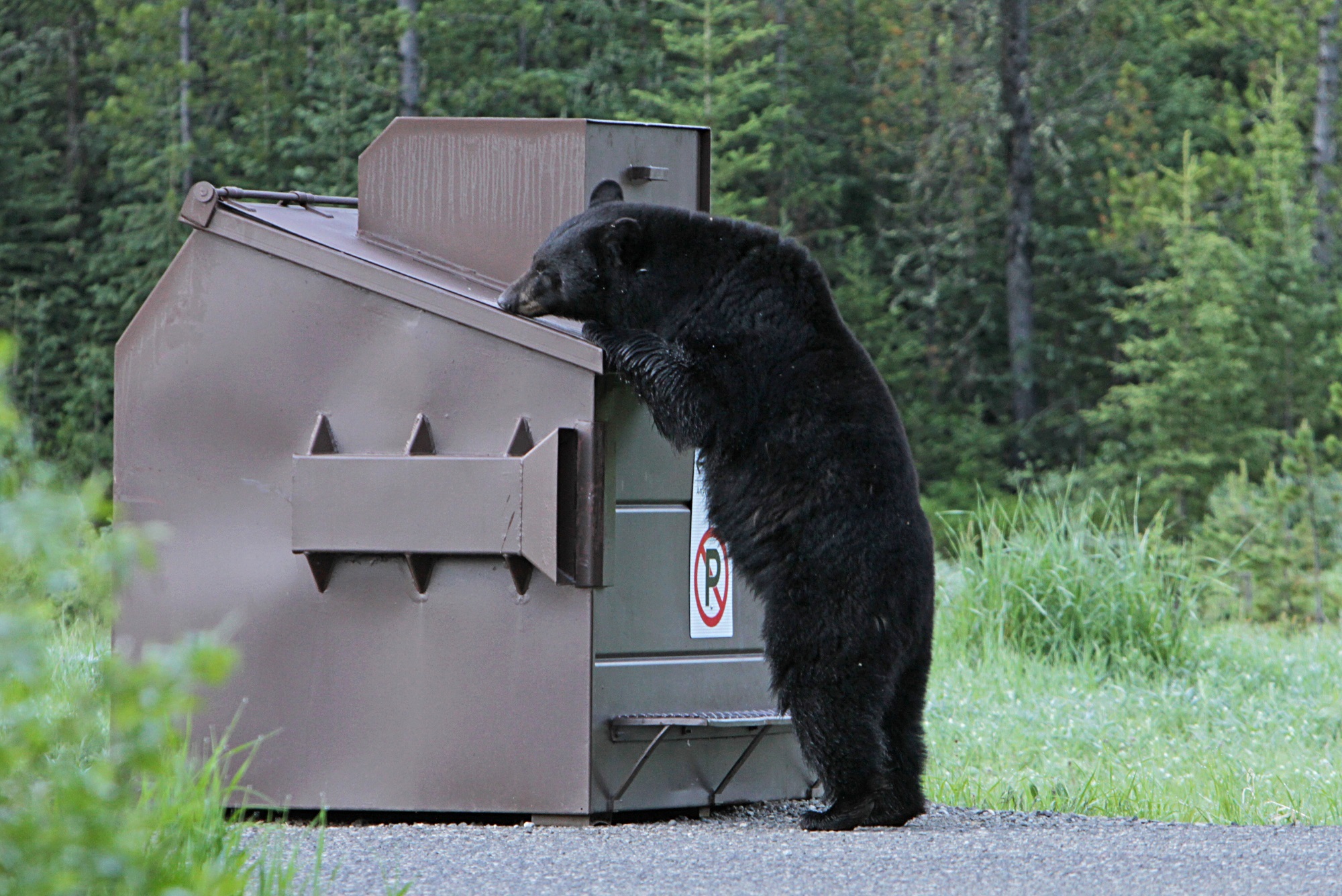
Human Foods + Bears = Trouble
When bears begin spending a lot of time in town, around people, cars and dogs, they begin to lose their natural fear of these things. Though bears are not typically aggressive towards people, they can become aggressive in their efforts to get food. A hungry bear can see the family pet that defends its food dish or a person toting a trash bag to the dumpster as a food competitor.
Bears that display threatening behaviors (such as stalking, or clacking their jaws) or that do not respond to efforts to scare them off cannot responsibly be relocated. Studies have shown that bears accustomed to human food commonly travel 30 miles or more to access that food. While Idaho has a lot of wild places, it’s difficult to find a place that’s more than 30 miles from a town or campground. Therefore, aggressive or excessively habituated bears must be destroyed to protect human safety. No one wants to be the reason a bear is destroyed.
Bear Country Living Comes With Responsibilities
The way to prevent this tragedy is to prevent the cycle from beginning in the first place. Taking the following precautions can prevent bears from accessing human foods, and stop the cycle of habituation, aggressiveness and removal:
- Keep trash in a bear-resistant container or in a secure enclosure, such as a garage
- Ensure that bear-resistant containers are properly closed and latched; never tamper with the latching mechanism
- Never leave trash outside overnight
- Do not feed birds, including hummingbirds, between March and November
- Keep pet foods inside at all times
- Pick fruit promptly when it begins to ripen, and clean up any fallen fruit
- Do not keep coolers, refrigerators, or freezers outside or on porches
- Keep barbeque grills clean after use
Here to Help
If a bear does access human food at your home or camp, biologists can provide information on how to prevent future incidents, and hopefully encourage the bear to move on. Regional offices are open Monday-Friday, 8:00am to 5:00pm.

